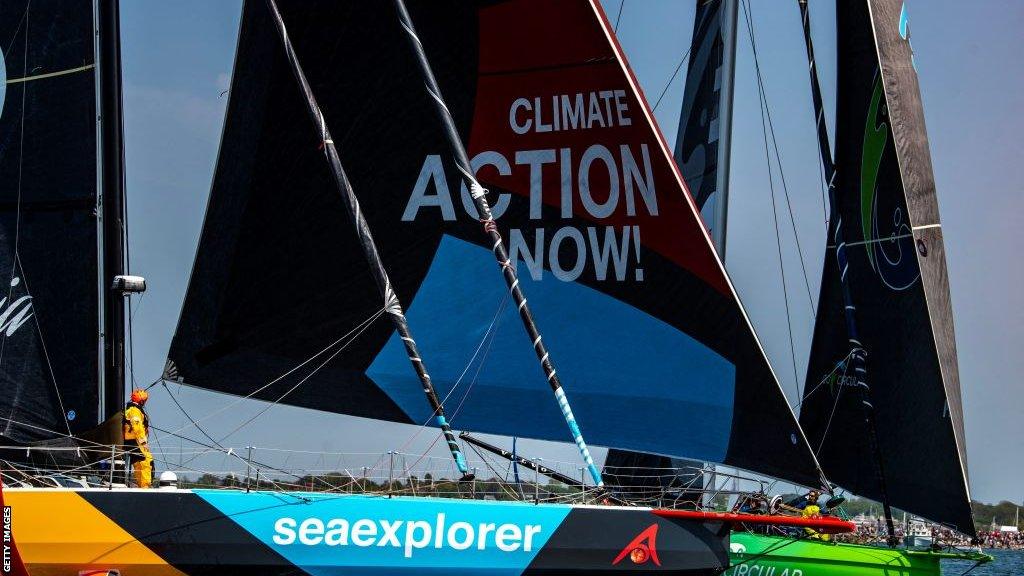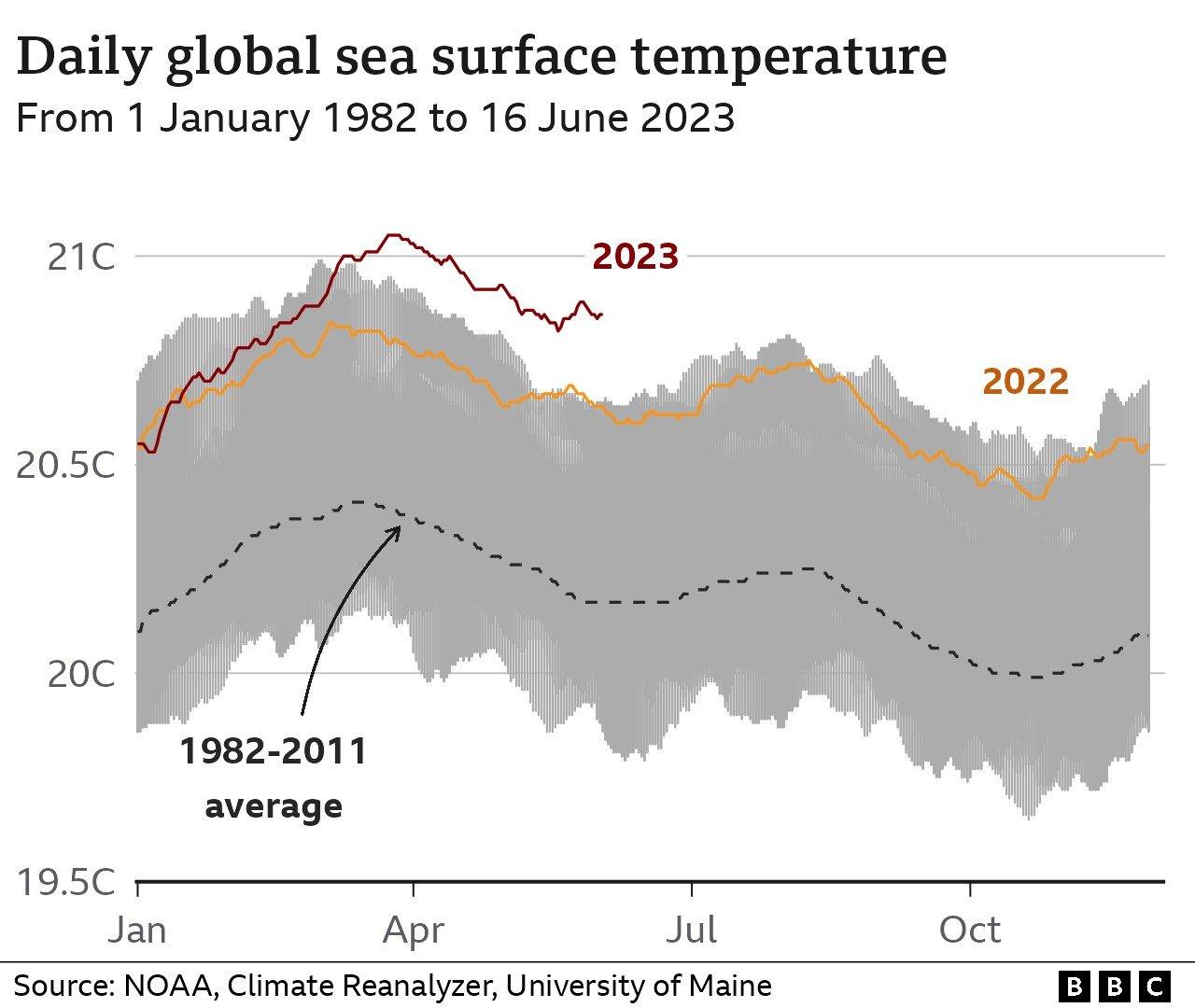The Ocean Race: Teams helping track warming sea and plastic pollution
- Published
- comments

British navigator Will Harris is part of Team Malizia, which bears the slogan 'Climate Action Now!' on its sail
"I had to jump over the side of the boat with a knife, like a pirate. We had ropes, fishing nets, pieces of garbage stuck around the hydrofoils."
Will Harris is a British sailor competing for Team Malizia in The Ocean Race, which finishes this week in Genoa, Italy, after a 60,000km circumnavigation of the globe over the past six months.
The teams have combined navigating what is considered one of the longest and toughest professional sporting events in the world with also doing their bit for climate impact research.
The boats are gathering information on plastic pollution, rising ocean temperatures and the amount of carbon dioxide and salt in the seas.
"This garbage has been in the ocean for 40 or 50 years," says Harris. "They end up a combination of rope, plastic - which isn't degrading - and sea life which has tried to grow on it.
"Imagine what it's going to be like in 300 years time. It's really scary and really eye opening."
The amount of plastic found in the ocean is increasing, with some areas showing a 20% rise from the last race in 2018.
Plastic is just one of the growing environmental impacts on our oceans, which Harris and the five teams competing have witnessed.
"I've seen things like sargassum seaweed clogging up the Caribbean," adds Harris. "We've seen less and less wildlife in particular, such as birds in the ocean and the storms that we experience at sea are getting more and more intense.
"So it's interesting that even in the few years I've been doing this racing, we're starting to see changes already. And often it's not for the better."
Ocean temperatures hottest on record

Global warming is causing ocean temperatures to rise as well, with record temperatures already reached this year.
The North Atlantic ocean around the UK, which is an area of concern, has seen some of the most intense marine heat increases on Earth.
Oceans and seas cover 70% of the world's surface, absorb more than 90% of heat from the sun and drive weather systems, so the speed of the warming effect is far-reaching.
Dr Marilena Oltmanns specialises in ocean and climate at the National Oceanography Centre and told the BBC the increase in ocean temperatures were "unprecedented" and "very alarming".
In the past 10 years the distance sailed in The Ocean Race has increased by 30%, with an exclusion zone around Antarctica being moved 1,000 miles further north due to more melting ice and the risk of icebergs.
Harris adds: "There's lots of stories now about huge icebergs ending up on South Georgia Island [in the South Atlantic Ocean] and they're going to potentially wipe out some pretty crucial wildlife spots.
"The bigger that this ice exclusion zone gets, the longer our race course ends up being because we have to sail further around Antarctica."
Boats doing their bit
All the boats competing in this 14th edition of the race have been fitted with scientific monitoring equipment to take readings in some of the most remote parts of the world's oceans and deliver data to scientists at the UK Oceanography Centre to study.
Results have found even in the most remote areas of the planet the presence of microplastics is pervasive.
Dr Katsiaryna Pabortsava is studying the results from the boats' data at the National Oceanography Centre.
"Every sample that we analysed so far had microplastics in it. And we are seeing more microplastics in the samples from this year's race in comparison to the last race that took place in 2017-2018," she says.
Dr Pabortsava adds some samples showed the quantity of microplastics was "20 times higher", but the methods used were "a lot more sensitive".

The shocking impact of commercial whaling: Top-secret Soviet whaling reports record the unimaginable number of whales killed
Why did Jimmy Carr start his career all over again?: He reveals it all to Steven Bartlett in The Diary of a CEO
